
|
|
Despite being in the business for nine years, Singapore’s top e-commerce platform Qoo10, with more than 30% share of the market, is still in the red. But turning profitable is on the horizon, shares Mr Ku Young Bae, Qoo10’s founder & chief executive officer. He expects Qoo10 to stop bleeding red ink in the second half of 2020 - as he eyes on an initial public offering the year after, to boot. 2018 losses are lower than 2017’s as "our sales volume continues an upward trend coupled with quicker deliveries made possible” with its cross-border shipping unit, Qxpress.
|
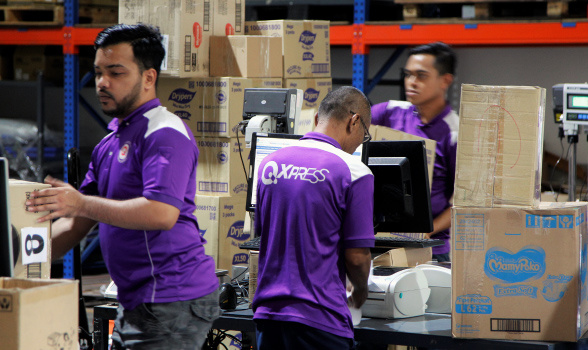
|
|
A South Korean serial entrepreneur, Mr Ku Young Bae, built Singapore’s biggest e-commerce company, Qoo10, in the last decade. The strong foundation of the business has fended off giant rivals like Alibaba, Amazon & Tencent. Now, his eyes are set to expand beyond his home based into Southeast Asia & in order to do that while competing with his cash-rich rivals, an audacious plan was formed.
|

|
|
|
|
Mr Ku says blockchain makes it cheaper to run an online marketplace, which allows the removal of fees that are currently charged to the merchants who sells products on the site. With this cost saving capability, he believes it will attract even more sellers. Together with the blockchain marketplace, Mr Ku has also created a payment system based on the technology that will help attract shoppers in a region where cash still predominates. This move was well received as more than 5,000 merchants have registered 2.3 million or so products on QuuBe three months after its launch in January 2019.
|
|
"It seems like we’re taking a step back in adopting a prepaid digital wallet system, but this will help consumers in developing markets that do not have credit cards, for instance, to still buy online,”
|
|
|

|
|
Getting merchants & online shoppers to commit to a pre-paid digital currency method helps to get people in developing markets that may not have easy access to credit or debit cards to engage in e-commerce. Mr Ku also acknowledged that other digital payments players such as Grab & Fave are also trying to address this hurdle through their respective mobile wallet offerings, but he is backing blockchain technology to be the decisive enabler for this. This also helps to grow the e-commerce platform’s footprint in the Southeast Asia region.
|
|
"You usually [put your] money in the bank; you wouldn’t put money into a private company’s [mobile wallet]; The company could go bankrupt, they could just change the data, or [money] can be stolen. Unless trust is built, you can’t be very sure that top-ups into the wallet can be the same. Those hurdles are sorted out by blockchain because the blockchain wallet is not something that we can change & access. Only you can access it.”
|
|
|

|
|
This element of decentralized regulation, according to Mr Ku, could go a long way in enabling unbanked communities. With Q*coins (∯) being available for purchase in 7-Eleven convenience stores, vendors could start their own businesses & buy goods even without access to a financial institution.
|
|
Despite not being the first one trying to apply blockchain to e-commerce, no company has gone all-in like Qoo10 - undeterred by the billions of dollars its competitors such as Alibaba Group Holding Ltd. & Tencent Holdings Ltd. are pouring into the region.
|
|
"This is my attempt to shift the paradigm & level the playing field. There hasn’t been any radical innovation in the e-commerce industry - with services largely resembling one another.”
|
|
|

|
|
Mr Ku is aiming for US$1 billion in gross merchandising volume by 2020, despite it being a lofty goal considering blockchain adoption is still in its nascent stages. Many firms are struggling to adopt the technology, while only 0.71% of the world’s population are using cryptocurrencies. But experts think that the idea of a decentralized e-commerce marketplace exemplifies the promise of blockchain.
|
|
"It is easy to imagine why such an alliance (between blockchain & e-commerce) might occur, with the removal of gatekeepers between buyer & seller, merchants, consumers, and manufacturers stand to benefit from more cost-efficient transactions; As e-commerce moves to the blockchain, the redistribution of power - no longer the sole property of retail giants - will allow more collaborative, creative, and competitive ways of business. Smart contracts will also improve friction points throughout supply chains as transactions undergo a methodological process of verifications & execution.”
|
|
|
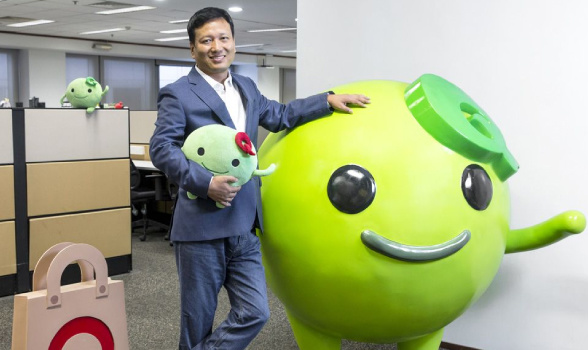
|
|
|
|---|
|
A lesser known long time e-commerce pioneer, Mr Ku Young Bae started a South Korean web store called Gmarket back in 2000 at the age of 34. Early on, he bets that people would be willing to buy clothing online without trying it on first & began selling stylish fast-fashion garments. The non-branded clothes sold so well that Gmarket soon became South Korea’s No.1 online shopping site - beating bigger rivals like Ebay Inc.’s Internet Auction Co. In 2006, Mr Ku’s startup became the first Korean e-commerce company to list on Nasdaq.
|
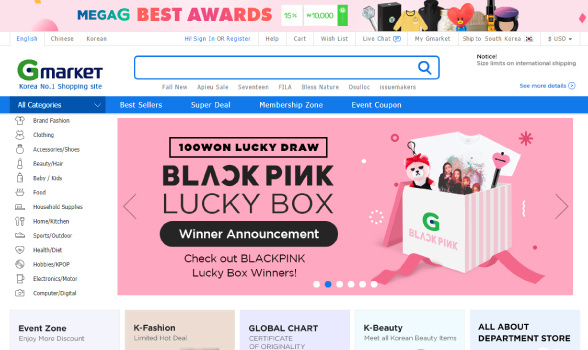
|
|
Mr Ku was busily building Gmarket into a pan-Asian e-commerce operator when his biggest shareholder, Interpark Corp., decided to accept an offer from EBay, which acquired Gmarket for $1.2 billion in 2009. He then struck a deal with the U.S. e-commerce company to form a joint venture & started Qoo10 in Singapore in 2010. The company has held onto its leading position without throwing money around. Since its inception, Qoo10 has raised a mere $230 million from investors. Tencent-backed Sea bled roughly the same amount every three months in 2018 to expand Shopee, and Alibaba pumping in a total of $4 billion since acquiring control of Lazada in 2016.
|
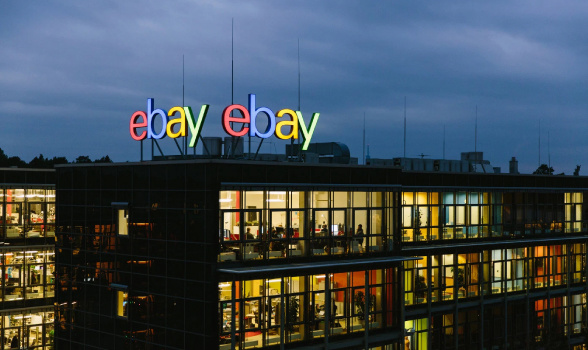
|
|
In 2018, Mr Ku sold Qoo10’s Japanese business to EBay for an undisclosed sum - giving him ammunition to expand in Southeast Asia. He’s now in the process of combining local Qoo10 sites from Malaysia to Hong Kong into a single marketplace & plans to invest heavily in the cross-border logistics unit, Qxpress, which has operations in eight countries & 11 delivery processing centers. Qxpress is also raising funds in order to add more centers.
|
|
Mr Ku knows it will be increasingly difficult to compete head-to-head with Lazada & Shopee and believes that blockchain will give him an edge. The technology automates certain e-commerce transactions & processes that typically require humans - which will eliminate merchant fees & make it easier for anyone to set up an online shop. Blockchain also enhances trust among participants because they can more easily trace transactions from start to finish.
|
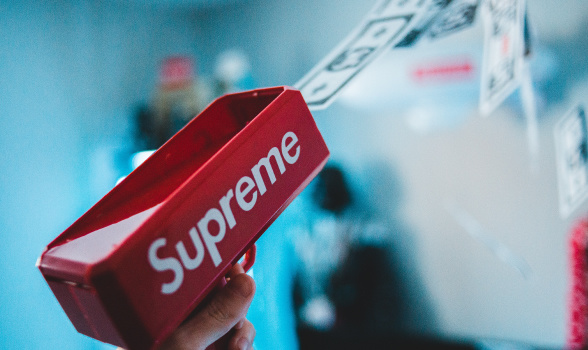
|
|
However, success is hardly guaranteed. Many enthusiastic companies have pulled back from various similar projects, partly because it’s difficult to deploy the technology in real-life situations. Larger, expanding companies may not see the urgent need to apply a different strategy. But Mr Ku is convinced blockchain will give him the necessary edge to compete & avoid getting into a cash-burning way of attrition.
|
|
"I want to show that we can prevail by using technologies, not by throwing money around.”
|
|
|
| Published: 10 September 2019 |
|
|
| Bloomberg | Channel NewsAsia | The Business Times |
| Tech in Asia | TechCrunch |
| Check out our iOS / Android app today! |
 
|

